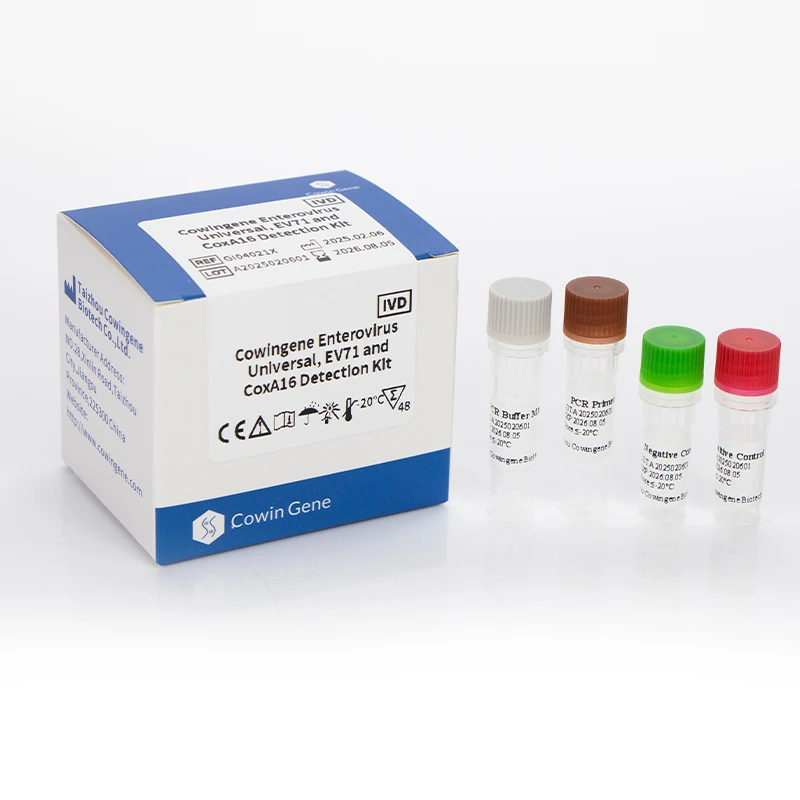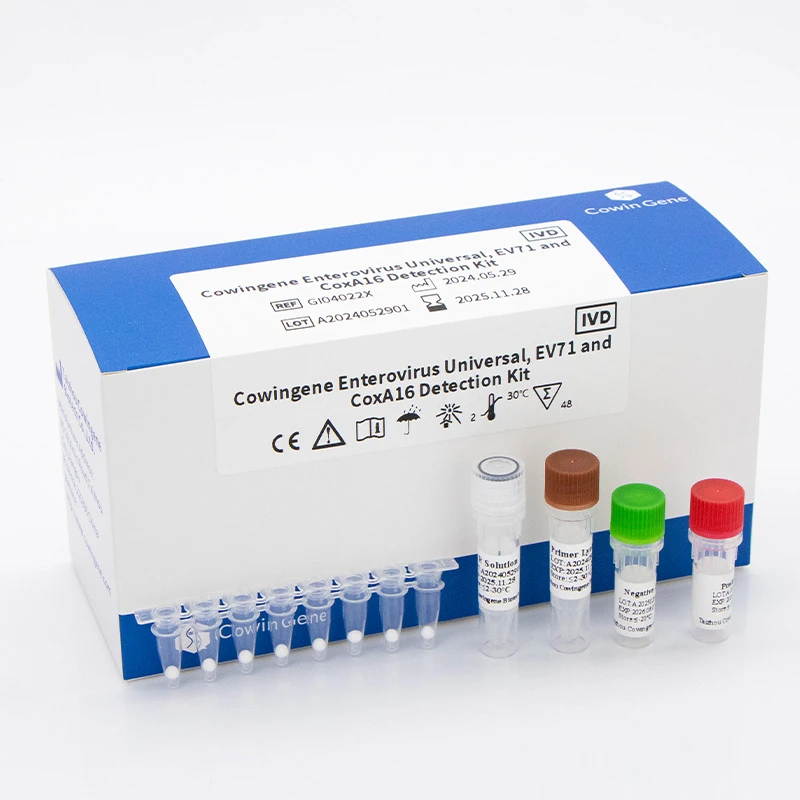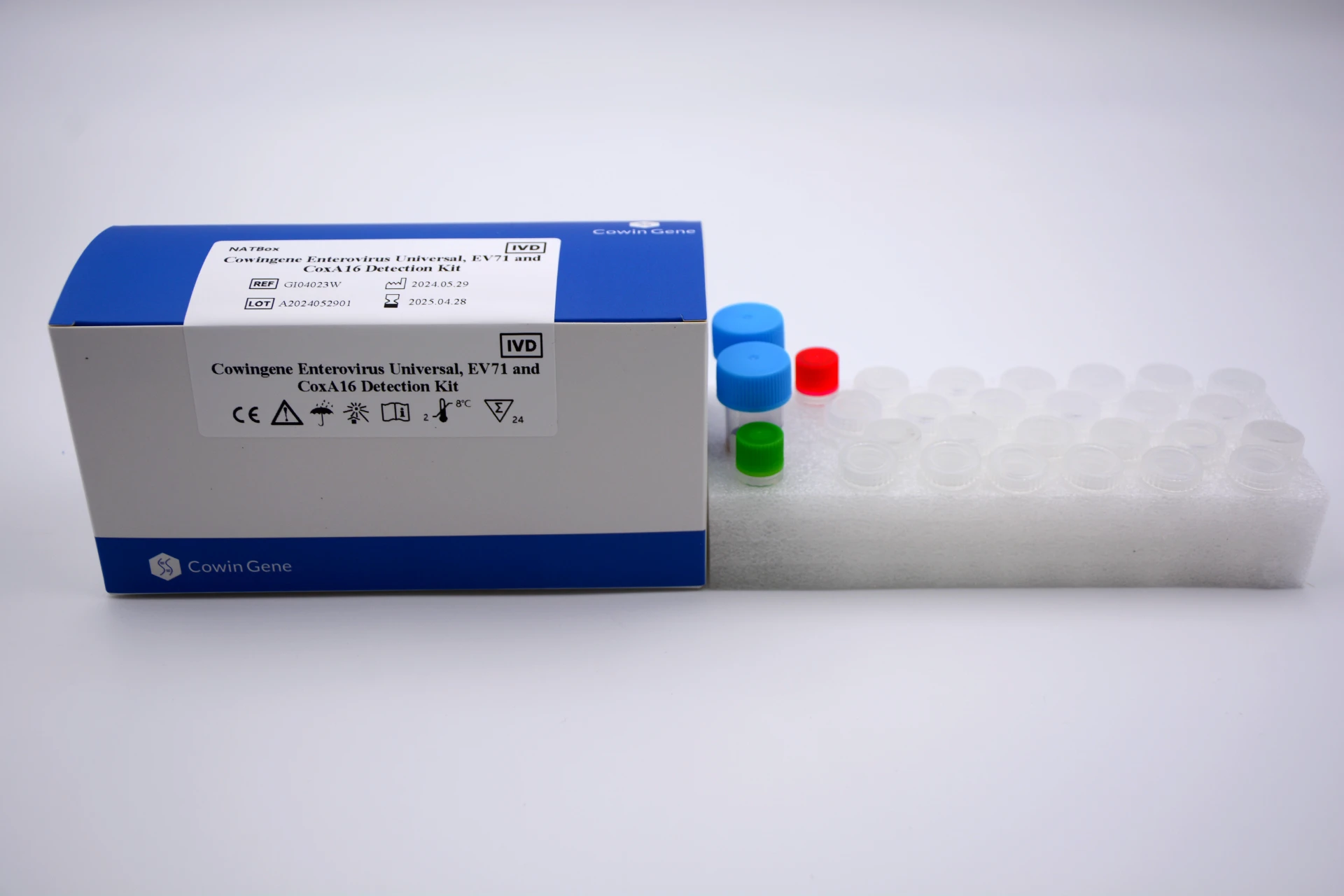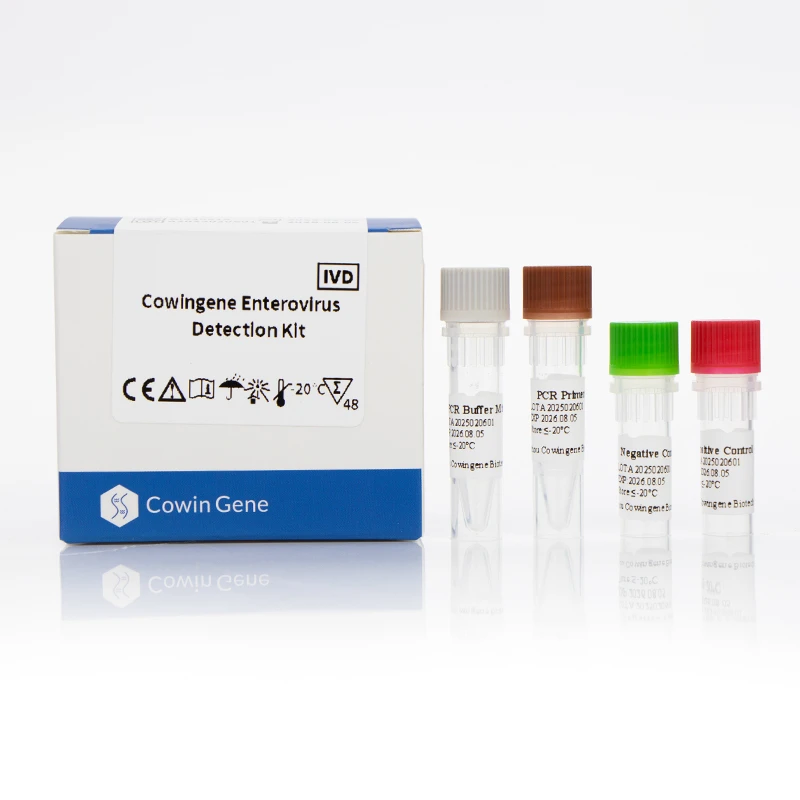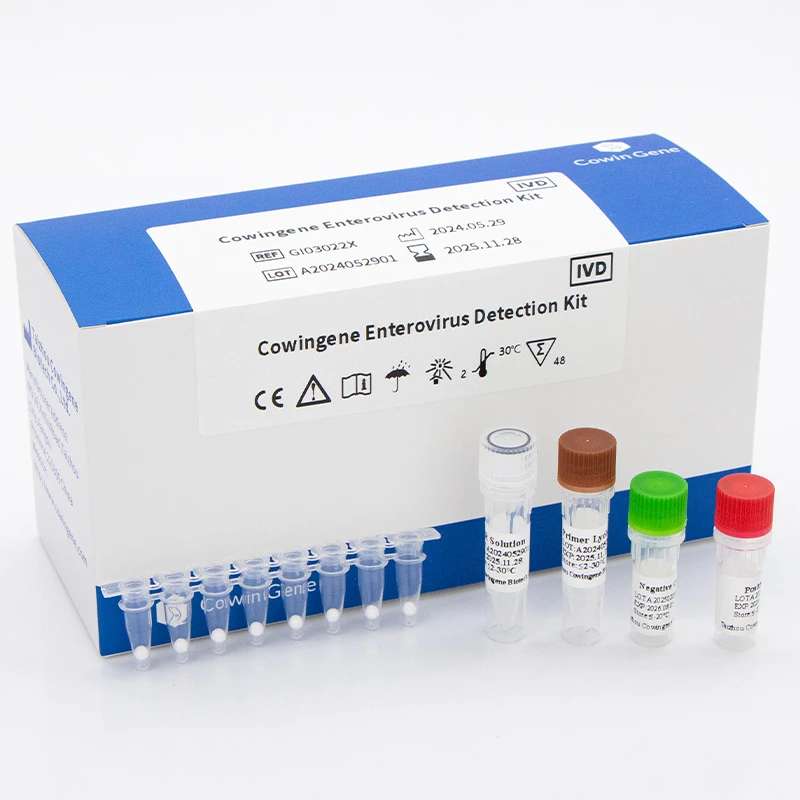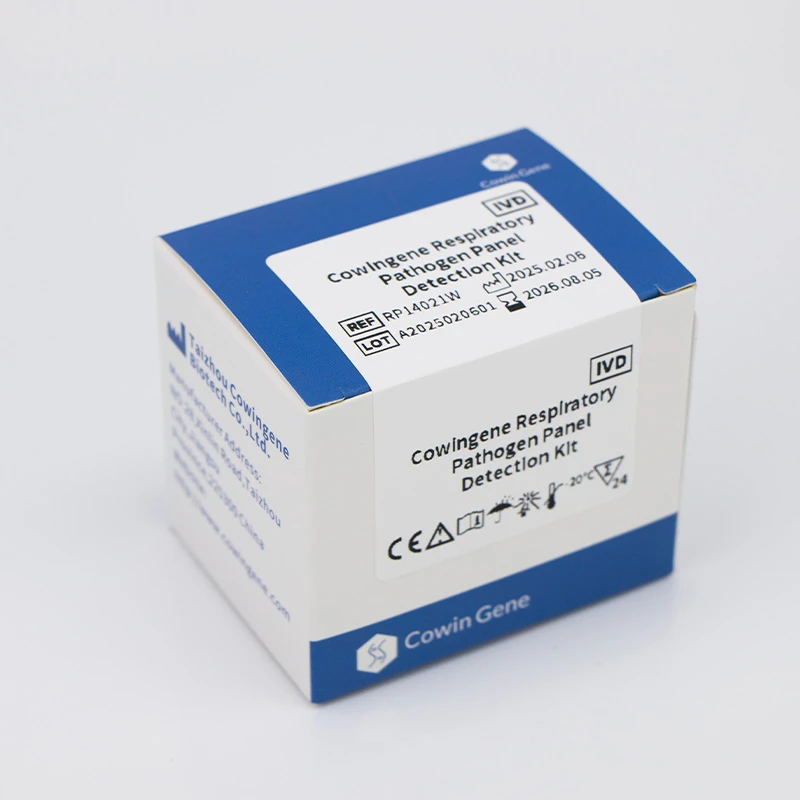أغسطس . 15, 2025 04:00 Back to list
Accurate Dengue PCR Test | Rapid RNA & RT-PCR Detection
The Critical Role of Advanced Diagnostics in Dengue Management
Dengue fever, a rapidly spreading mosquito-borne viral infection, poses a significant global health challenge, affecting millions annually across tropical and subtropical regions. Accurate and timely diagnosis is paramount for effective patient management, public health surveillance, and epidemic control. While traditional diagnostic methods such as serological tests detect antibodies, they often suffer from limitations in early infection detection or differentiation from other flaviviruses. This is where advanced molecular diagnostics, particularly the dengue pcr test, have emerged as a cornerstone technology. PCR-based assays offer unparalleled sensitivity and specificity, enabling direct detection of viral genetic material during the acute phase of infection, often before an antibody response is mounted. This early detection capability is crucial for implementing prompt clinical interventions and public health measures, minimizing disease progression and transmission.
The landscape of dengue diagnostics is continuously evolving, driven by the need for faster, more reliable, and accessible testing solutions. Molecular techniques, including real-time reverse transcription polymerase chain reaction (RT-PCR), have become the gold standard due to their ability to detect viral RNA even at low concentrations. The adoption of such sophisticated diagnostic tools is not merely a clinical imperative but also a strategic investment for national health systems in endemic areas. By providing definitive diagnostic results, these tests empower healthcare providers to make informed decisions, differentiate dengue from other febrile illnesses, and monitor the circulation of specific dengue virus serotypes, which is vital for understanding epidemiological patterns and predicting potential outbreaks. The precision offered by PCR technology significantly enhances overall disease management strategies.
Industry Trends and Technological Advancements in Dengue PCR Testing
The global market for molecular diagnostics is experiencing robust growth, propelled by the increasing prevalence of infectious diseases and advancements in genomic technologies. For dengue, a significant trend is the shift towards integrated and multiplexed dengue pcr test platforms that can simultaneously detect all four dengue virus serotypes (DENV-1, DENV-2, DENV-3, DENV-4), and often differentiate them, alongside other common febrile pathogens like Zika or Chikungunya viruses. This multiplexing capability reduces the need for multiple tests, saving time and resources, particularly in resource-constrained settings. Furthermore, there's a strong drive towards developing point-of-care (POC) dengue rt pcr test solutions. These portable, rapid systems aim to bring molecular diagnostics closer to the patient, enabling testing in remote clinics or during field surveillance, thereby accelerating diagnosis and response times. Miniaturization and automation are key enablers for these POC devices, making them user-friendly and less reliant on specialized laboratory infrastructure.
Another notable trend is the integration of advanced bioinformatics and artificial intelligence (AI) in PCR data analysis, leading to more accurate interpretation and faster reporting. Manufacturers are also focusing on developing lyophilized or pre-aliquoted reagents to enhance test stability, simplify logistics, and reduce cold chain requirements, which is critical for global distribution, especially to regions with limited infrastructure. The demand for highly sensitive and specific dengue rna pcr test kits that can detect viral RNA even in the very early stages of infection, sometimes even pre-symptomatically, continues to drive innovation. Regulatory bodies worldwide, including the WHO, are actively promoting the development and deployment of robust molecular diagnostics for arboviral diseases, reflecting their commitment to strengthening global health security. This push for innovation ensures that the latest advancements are quickly translated into deployable diagnostic tools.
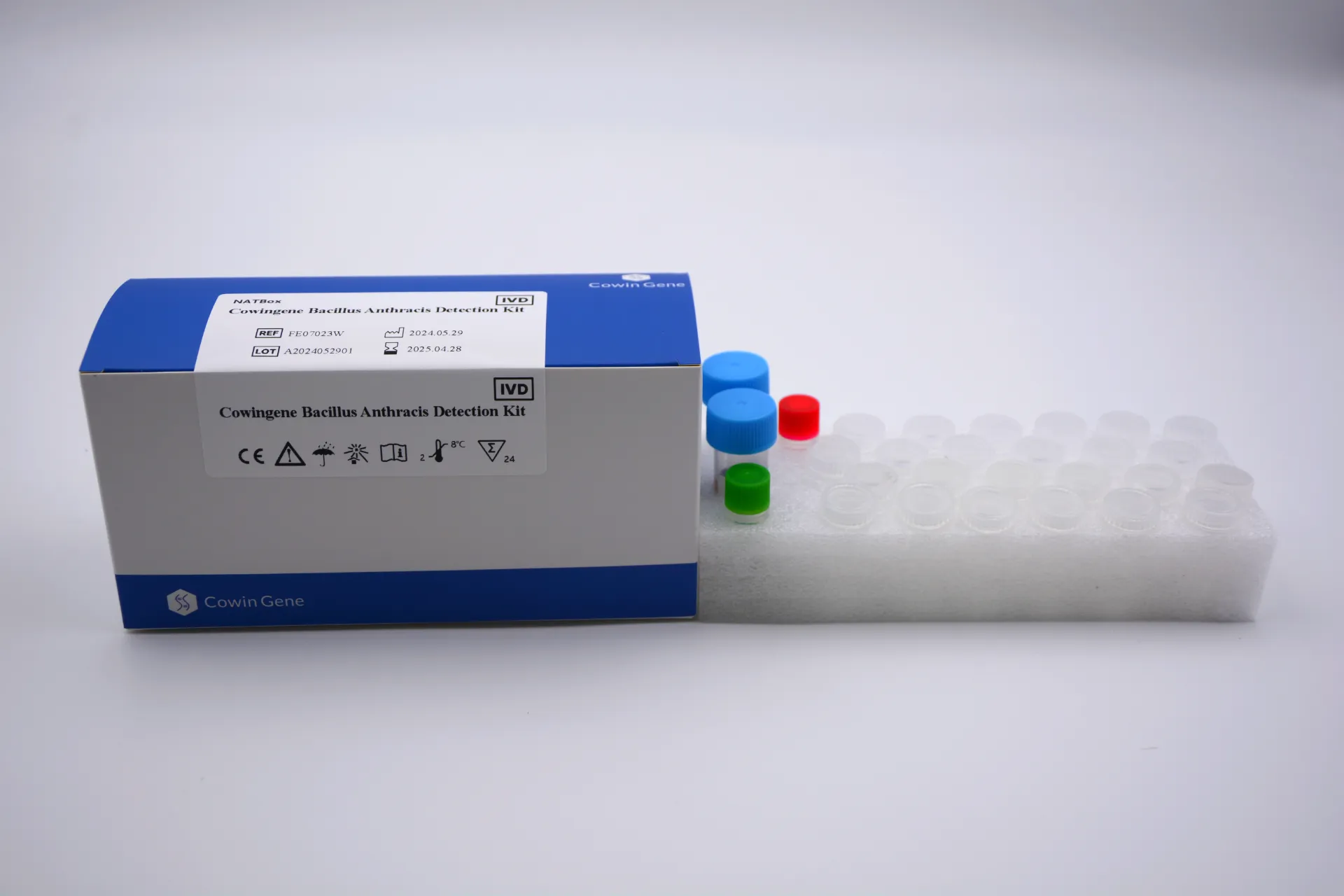
Technical Parameters and Performance Benchmarks
The efficacy of a dengue pcr test is primarily defined by several key technical parameters. These include sensitivity, which measures the proportion of true positives correctly identified (e.g., detecting viral RNA even at very low viral loads); specificity, which refers to the proportion of true negatives correctly identified (i.e., not yielding positive results for other non-dengue infections or healthy individuals); and the limit of detection (LoD), indicating the lowest concentration of target nucleic acid that the assay can reliably detect. A typical LoD for high-quality dengue rna pcr test kits ranges from 10 to 100 copies/mL. Turnaround time (TAT) is another critical factor, with rapid assays delivering results within 1-2 hours, compared to conventional laboratory PCR which might take 3-4 hours, or even longer depending on batch processing. Moreover, multiplexing capabilities, sample compatibility (e.g., serum, plasma, urine, whole blood), and the ability to differentiate all four DENV serotypes are essential features.
Standardization and quality control are paramount in molecular diagnostics. Reputable manufacturers adhere to international standards such as ISO 13485 for medical device quality management systems and strive for CE-IVD marking or FDA Emergency Use Authorization (EUA) or clearance, which signify compliance with rigorous performance and safety criteria. Laboratories implementing these tests also follow guidelines from organizations like the Clinical and Laboratory Standards Institute (CLSI) for proper assay validation and implementation. The dynamic range of a real-time dengue rt pcr test defines the viral load range over which the assay can accurately quantify the target RNA, typically spanning 5-7 log orders. Consistent performance across varying viral loads and different patient samples, along with minimal cross-reactivity with other related viruses, are hallmarks of a superior diagnostic solution. The table below provides a general overview of typical parameters for high-performance dengue PCR kits.
| Parameter | Description | Typical Performance (High-End Kits) |
|---|---|---|
| Sensitivity | Ability to correctly identify true positives. | >95% (often >98%) |
| Specificity | Ability to correctly identify true negatives. | >98% (often >99%) |
| Limit of Detection (LoD) | Lowest detectable concentration of viral RNA. | 10-50 copies/mL |
| Turnaround Time (TAT) | Time from sample to result. | 1-4 hours (kit-dependent) |
| Serotype Detection | Ability to detect and differentiate all four DENV serotypes. | DENV-1, DENV-2, DENV-3, DENV-4 (often multiplexed) |
| Sample Types | Compatible clinical specimens. | Serum, Plasma, Whole Blood |
Application Scenarios and Strategic Advantages
The versatility of the dengue pcr test extends across various critical application scenarios. In clinical diagnostics, it is indispensable for early and definitive confirmation of dengue infection, particularly during the febrile phase (Days 1-7 post-onset of symptoms), when NS1 antigen and serological tests might yield negative results. This early diagnosis allows clinicians to initiate appropriate supportive care, monitor for warning signs of severe dengue, and prevent unnecessary antibiotic use. Furthermore, in public health surveillance, dengue rna pcr test kits are vital for monitoring disease incidence, tracking virus circulation patterns, identifying the prevailing serotypes, and detecting emerging outbreaks. This data is crucial for targeted vector control interventions and resource allocation during epidemics. For instance, in 2019, a surge in DENV-2 cases in parts of Southeast Asia was rapidly identified through extensive PCR testing, allowing public health authorities to anticipate and prepare for a potentially more severe clinical course.
Beyond routine clinical and surveillance applications, the dengue rt pcr test is also extensively used in research settings to study viral genomics, understand dengue pathogenesis, and evaluate the efficacy of new antiviral drugs or vaccine candidates. Its high sensitivity makes it suitable for detecting persistent viral RNA in challenging samples or for studies on viral kinetics. In blood banks, nucleic acid amplification tests (NAT) for dengue help screen donor blood to prevent transfusion-transmitted dengue, a rare but significant risk in endemic areas. The ability of PCR to differentiate between primary and secondary infections, especially when combined with serological markers, also provides valuable insights into the immune status of individuals and populations. The strategic advantages offered by these tests include enhanced diagnostic accuracy, improved patient outcomes through early intervention, more effective public health responses, and a deeper scientific understanding of the disease, ultimately contributing to better global dengue management strategies.
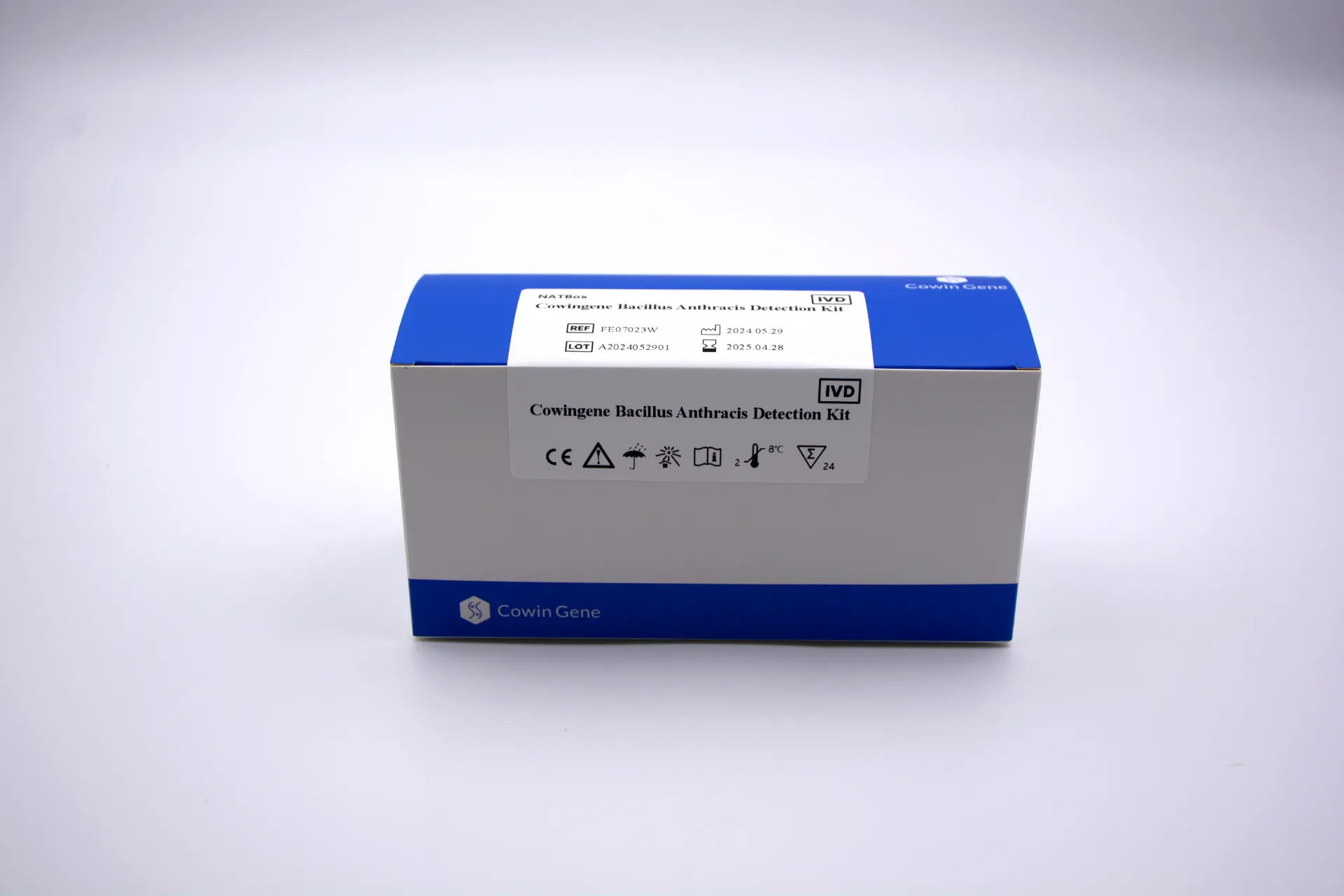
Manufacturing Process and Quality Assurance for Diagnostic Kits
The development and manufacturing of a high-quality dengue pcr test kit is a meticulously controlled process, distinct from traditional industrial manufacturing but equally stringent in its quality demands. It begins with the precise selection and sourcing of high-purity raw materials, including oligonucleotides (primers and probes), enzymes (reverse transcriptase, DNA polymerase), nucleotides (dNTPs), and various buffer components. These materials must meet stringent purity and activity specifications to ensure assay performance. The manufacturing process itself involves a series of highly controlled steps, including reagent formulation, where specific concentrations of each component are mixed under sterile conditions. This is followed by nucleic acid synthesis and purification for primers and probes, which are the backbone of the PCR reaction's specificity. For enzymes, rigorous quality control ensures optimal activity and stability. The entire process often takes place in ISO-certified cleanroom environments to prevent contamination.
Key manufacturing steps for a dengue rt pcr test kit often include: 1) Component Preparation: Individual reagents are prepared, purified, and tested for quality and concentration. 2) Formulation & Dispensing: Reagents are precisely mixed into master mixes, then accurately dispensed into reaction tubes or plates, often using automated liquid handling systems to ensure consistency. 3) Lyophilization (Freeze-Drying): Many modern kits utilize lyophilization to stabilize reagents, extending shelf life and eliminating the need for cold chain storage, which is crucial for global distribution. This process requires precise temperature and pressure control. 4) Packaging: Kits are assembled, packaged with desiccant, and labeled according to regulatory requirements. Throughout these stages, continuous in-process quality control (IPC) checks are performed. Final product release involves comprehensive batch testing against established performance criteria, including sensitivity, specificity, reproducibility, and stability, typically validated against international reference materials or WHO panels. Adherence to standards like ISO 13485 (Medical Devices - Quality Management Systems) is fundamental, ensuring product consistency, reliability, and safety for healthcare professionals and patients.
Technical Advantages of PCR-Based Dengue Diagnostics
The technical superiority of a dengue pcr test over traditional serological methods is multifaceted. Firstly, its unparalleled sensitivity allows for the detection of viral RNA very early in the course of infection, typically within the first five days of symptom onset. This early window of detection is critical because it's when patients are most viremic and thus most likely to transmit the virus, and also when clinical interventions can have the greatest impact. Serological tests, relying on antibody response (IgM/IgG), usually become positive later, often after the viremic phase has passed, limiting their utility for acute diagnosis. Secondly, dengue rna pcr test offers high specificity, directly targeting the dengue viral genome, minimizing false positives that can occur with serology due to cross-reactivity with other flaviviruses (like Zika, West Nile, or Japanese Encephalitis viruses) or previous dengue infections. This precision is vital for accurate diagnosis and epidemiological clarity.
Furthermore, advanced dengue rt pcr test assays can quantify the viral load, providing a numerical measure of the amount of virus present in a patient's blood. While not yet a definitive prognostic marker, viral load dynamics are a significant area of research and can potentially aid in monitoring disease progression or response to future antiviral treatments. The ability to multiplex, detecting all four dengue serotypes in a single reaction, offers significant efficiency improvements, reducing reagent consumption, hands-on time, and overall cost per test compared to running multiple individual assays. This multiplexing also enables rapid serotype identification, crucial for surveillance and understanding the risk of severe dengue, as sequential infections with different serotypes are a known risk factor. The inherent robustness of PCR technology, when performed with proper controls and validated protocols, provides highly reliable and reproducible results, which is essential for both clinical decision-making and public health action. These combined technical advantages solidify PCR's position as the gold standard in acute dengue diagnostics.
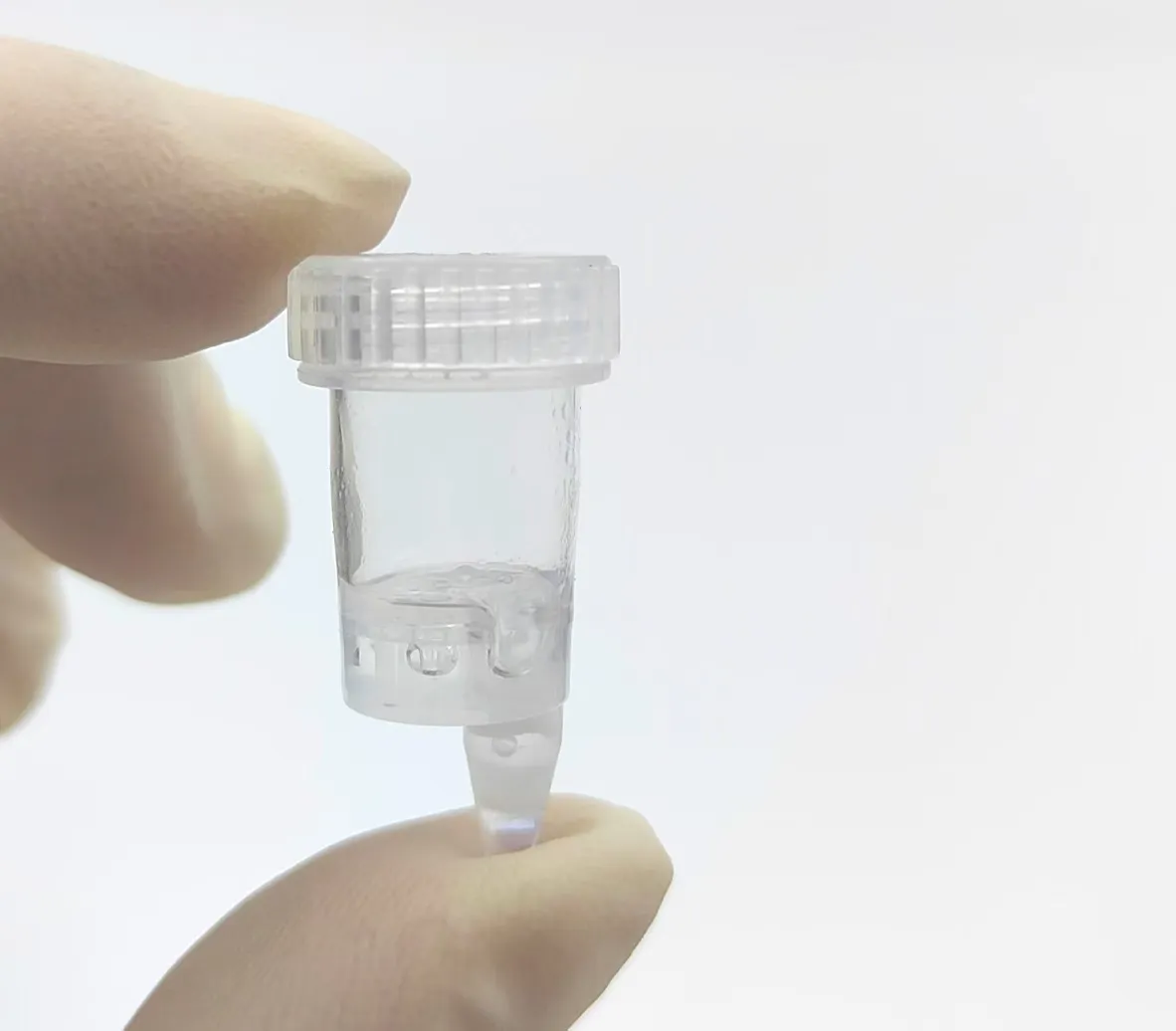
Manufacturer Comparison and Customized Solutions
When selecting a dengue pcr test solution, B2B decision-makers, including laboratory managers, public health officials, and procurement specialists, often evaluate manufacturers based on several key criteria beyond just kit performance. These include a manufacturer's reputation, track record, global distribution network, and capacity for providing comprehensive technical support and training. Leading molecular diagnostic companies typically offer a portfolio of products, ranging from manual extraction kits and standalone PCR reagents to fully automated sample-to-result platforms. The choice often depends on the laboratory's throughput requirements, existing infrastructure, budget, and desired level of automation. For instance, a high-volume central laboratory might prioritize integrated systems that minimize manual steps and reduce turnaround time, whereas a smaller regional lab might opt for a more modular, cost-effective solution.
Customized solutions are becoming increasingly important, especially for large-scale public health programs or research initiatives. Manufacturers may offer tailored dengue rna pcr test configurations, such as bulk reagent packaging, specific instrument compatibility, or co-development partnerships for novel diagnostic targets or workflows. For example, a national surveillance program might require a dengue rt pcr test kit optimized for high-throughput screening of asymptomatic carriers or for rapid deployment in mobile laboratories during an outbreak. This requires manufacturers to be agile and responsive, often leveraging their R&D capabilities to meet specific client needs. Comprehensive service agreements, including instrument installation, preventive maintenance, calibration, and rapid troubleshooting, are also crucial elements influencing procurement decisions. Evaluating a manufacturer’s commitment to ongoing innovation and their ability to provide integrated diagnostic solutions across the entire disease management spectrum is paramount for long-term partnerships.
Case Studies and Real-World Impact
The real-world impact of a reliable dengue pcr test is best illustrated through successful application cases. Consider the large-scale dengue outbreak in Brazil in 2015, where the rapid deployment of PCR-based diagnostics played a pivotal role in early detection, differentiating dengue from co-circulating arboviruses like Zika and Chikungunya. Health authorities leveraged the sensitivity of the dengue rna pcr test to confirm thousands of cases quickly, allowing for targeted public health interventions such as intensified vector control measures and public awareness campaigns in affected areas. This rapid diagnostic capability was instrumental in containing the spread and managing patient load effectively. Another compelling example comes from research collaborations: academic institutions partnering with diagnostic manufacturers to develop new generation multiplex dengue rt pcr test assays capable of simultaneously detecting dengue, Zika, and Chikungunya in a single reaction. These advanced assays, validated through extensive clinical trials involving thousands of patient samples from endemic regions, have demonstrated superior performance metrics compared to individual tests, significantly improving diagnostic efficiency.
Furthermore, in remote or underserved areas, the adoption of portable, battery-operated dengue pcr test systems has revolutionized diagnostic access. Field teams can collect samples and perform testing on-site, providing results within hours rather than days, which dramatically reduces patient follow-up loss and allows for immediate clinical management or isolation. For instance, an initiative in the Philippines deployed such mobile PCR units during the rainy season, leading to a substantial reduction in the time from symptom onset to confirmed diagnosis. This immediate feedback loop enabled health workers to identify clusters of infection faster and deploy resources more efficiently. These cases underscore how robust and accessible PCR diagnostics are not just laboratory tools but critical components of a comprehensive public health strategy, directly contributing to disease control and better health outcomes globally.
Ensuring Reliability and Trust: FAQs, Support, and Guarantees
Building trust in molecular diagnostics is paramount. Reputable providers of dengue pcr test kits support their products with comprehensive client services and clear guarantees. This includes readily available technical support staffed by molecular biology experts, offering assistance with assay setup, troubleshooting, and data interpretation. Furthermore, detailed user manuals, application notes, and online tutorials are typically provided to ensure smooth implementation and operation. For B2B clients, especially those involved in large-scale public health initiatives, understanding the logistics and support structure is as important as the product's technical specifications. Companies committed to trustworthiness also offer transparent delivery schedules, often with global logistics capabilities to ensure timely supply even to remote regions. A typical delivery cycle for standard orders ranges from 1-3 weeks, depending on destination and customization requirements.
Product quality assurance is typically backed by a clear warranty, covering manufacturing defects and ensuring that the product meets its stated performance parameters for the duration of its shelf life. For instance, kits are often guaranteed to perform as specified when stored and used according to instructions, typically for 12-24 months from the manufacturing date. Customer support extends to comprehensive training programs for laboratory personnel, both on-site and virtually, ensuring optimal utilization of the dengue rna pcr test kits and associated instrumentation. Furthermore, many leading manufacturers maintain ISO 13485 certification, underscoring their commitment to strict quality management systems throughout the product lifecycle. This holistic approach to product quality, technical support, and logistical efficiency fosters long-term partnerships and reinforces confidence in the diagnostic solutions provided.
Frequently Asked Questions (FAQs)
-
Q: What is the primary advantage of a dengue pcr test over serological methods?
A: The primary advantage is early detection. PCR detects viral RNA directly during the acute phase of infection (days 1-7), often before an antibody response is mounted, enabling earlier diagnosis and intervention. Serological tests detect antibodies, which appear later in the infection.
-
Q: Can a dengue rt pcr test differentiate between all four dengue serotypes?
A: Yes, many advanced real-time PCR kits are multiplexed to detect and differentiate all four dengue virus serotypes (DENV-1, DENV-2, DENV-3, DENV-4) in a single reaction. This is crucial for epidemiological surveillance and understanding disease severity risk.
-
Q: What are the typical sample types used for dengue rna pcr test?
A: The most common sample types for dengue RNA detection are serum and plasma. Whole blood can also be used, though its processing might differ slightly depending on the specific kit. In some research contexts, urine or other body fluids might be investigated.
-
Q: What is the shelf life of a typical dengue pcr test kit?
A: The shelf life typically ranges from 12 to 24 months from the date of manufacture, provided the kit is stored according to the manufacturer's recommendations (usually refrigerated or at specified temperatures). Lyophilized kits often have longer stability.
Conclusion and References
The continued advancement of the dengue pcr test represents a pivotal development in global health. Its superior sensitivity, specificity, and ability to detect and differentiate dengue serotypes early in the infection cycle make it an indispensable tool for clinical diagnosis, public health surveillance, and research. As the world faces increasing challenges from vector-borne diseases, investing in robust, reliable, and accessible molecular diagnostic solutions is no longer just an option but a strategic imperative. Manufacturers committed to quality, innovation, and comprehensive client support are essential partners in this global effort. The ongoing development of more user-friendly, rapid, and cost-effective PCR technologies promises to further expand the reach and impact of these critical diagnostic tools, ultimately contributing to more effective dengue management and control worldwide.
References
- World Health Organization. (2009). Dengue: Guidelines for Diagnosis, Treatment, Prevention and Control.
- Lanciotti, R. S. (2014). Molecular Diagnostics for Dengue Virus Infections. Clinical Chemistry, 60(1), 229-234.
- Peeling, R. W., Artsob, M., Pelegrino, E. C., Buchy, P., Cardosa, M. J., Devi, S., ... & WHO Tropical Diseases Research Special Programme. (2010). Diagnostics for dengue fever: a global perspective. Nature Reviews Microbiology, 8(12 Suppl), S30-S40.
- Guzman, M. G., & Harris, E. (2015). Dengue. The Lancet, 385(9966), 453-465.
Related PRODUCTS
-
Fast & Accurate Dengue PCR Test for Early Diagnosis
NewsAug.21,2025 -
Accurate Legionella Pneumophila Detection PCR Kits
NewsAug.19,2025 -
Rapid & Accurate PCR Influenza A Testing Solutions
NewsAug.18,2025 -
Accurate HPV Genotyping Test Kit | Home Self-Sampling
NewsAug.17,2025 -
Advanced Respiratory Panel Lab Test for Quick Diagnosis
NewsAug.14,2025


